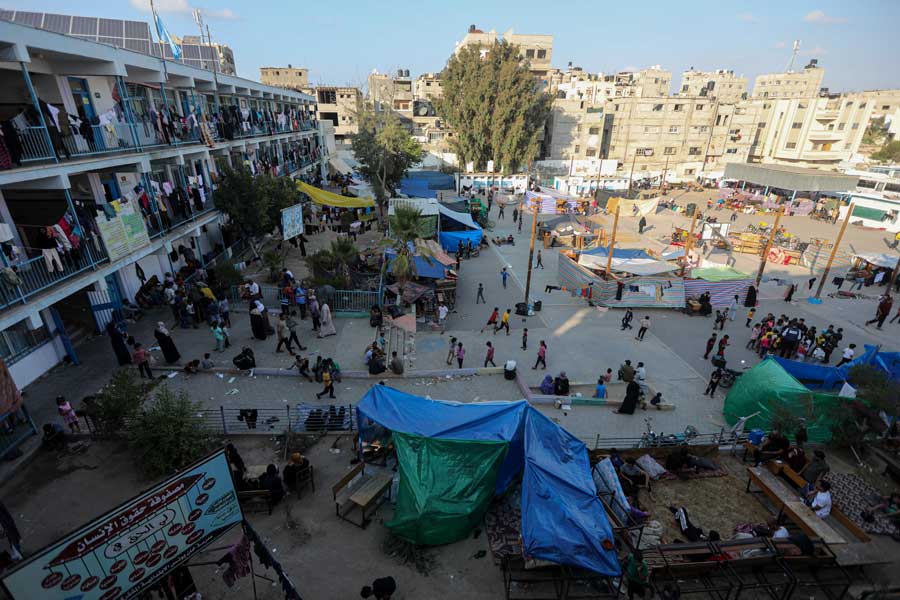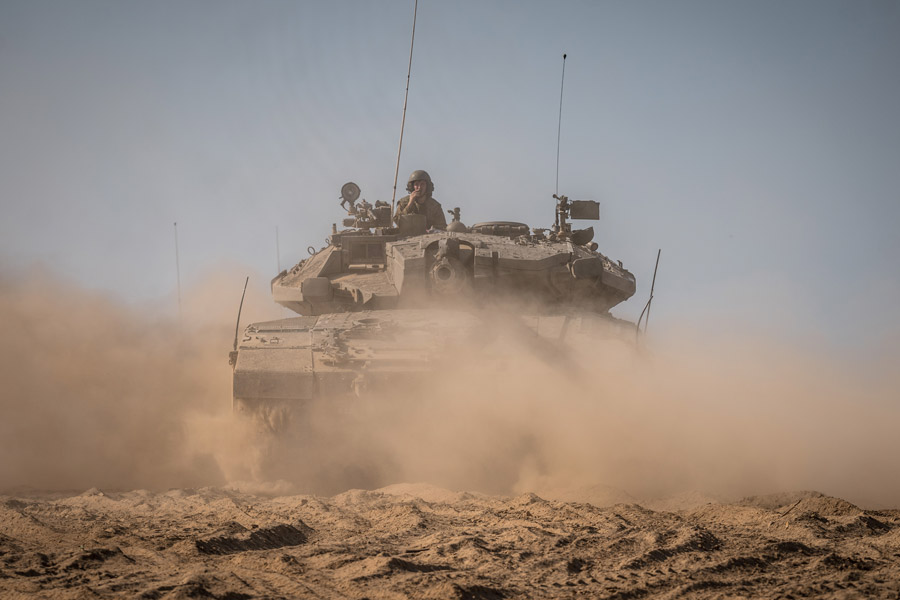Diplomats struggled to ease an escalating humanitarian crisis in Gaza and get foreigners out of the blockaded enclave as intensifying clashes along Israel’s border with Lebanon and Israeli airstrikes inside Syria stoked fears of a wider conflict in the region.
With senior Israeli military officers signaling their intent to invade Gaza, Israel’s new emergency wartime government held its first formal meeting on Sunday, and appeared to be preparing for the invasion. “We will take Hamas apart,” Prime Minister Benjamin Netanyahu told the government ministers, according to a statement from his office.
The United States sent a second aircraft carrier strike group, the Dwight D. Eisenhower, to the eastern Mediterranean, joining the Gerald R. Ford and its escorts, to help “to deter hostile actions against Israel or any efforts toward widening this war,” Defense Secretary Lloyd Austin said in a statement.
Israel is days into a campaign of punishing retaliatory airstrikes on Gaza that began after Hamas gunmen killed more than 1,300 Israelis in a brutal incursion last weekend.
On Sunday, Israel’s military again warned residents of the enclave to move south and offered a three-hour midday window to leave via Salahuddin Road, a main highway. But Gaza’s Health Ministry said it would not evacuate hospitals. “Our moral position obliges us to continue working,” the ministry’s spokesperson, Ashraf al-Qudra, said in a statement.

Palestinians displaced from the northern Gaza Strip fill the grounds of a United Nations-run school in Khan Younes on Saturday, Oct. 14, 2023. Hundreds of thousands of Gazans fleeing south in response to Israeli warnings struggled to find food and shelter on Saturday in an intensifying humanitarian crisis, with the United Nations saying that water supplies were dwindling. (Yousef Masoud/The New York Times)
At least 2,670 people in Gaza have been killed over the past week, according to the Palestinian Health Ministry. Palestinian news media reported on Sunday that an Israeli strike on a home in Rafah, near the closed Egypt border crossing, had killed at least 17 members of a family.
Nearly half of Gaza’s population of more than 2 million people has already been displaced and is facing dwindling supplies of food and water after Israel declared a “complete siege” to cut off basics from the enclave. Jake Sullivan, the White House national security adviser, told CNN on Sunday that Israel had restored the water supply to part of Gaza, though there was no immediate confirmation from officials there or in Israel.
The United States has been trying to persuade Israel to open a corridor that would let aid in and foreigners out while simultaneously trying to broker a deal for the same through Egypt’s Rafah crossing. Yet even as foreigners gather near the Egyptian border in anticipation, the diplomatic efforts are hitting hurdles.
Here’s what you need to know:
— Fighting along Israel’s northern border with Lebanon has escalated in recent days. On Sunday, at least one Israeli was killed and three others were wounded after fire from Lebanon hit the border community of Shtula in northern Israel. The Israeli military said it was returning fire.
— US Secretary of State Antony Blinken, who has been in the region since Thursday meeting with Israeli and Arab leaders, and said he had a “very good conversation” in Cairo with the Egyptian president, Abdel-Fattah el-Sissi. Blinken said that David Satterfield, a veteran diplomat, will arrive in the region on Monday to start trying to coordinate shipments of humanitarian aid into Gaza.
— Israeli airstrikes overnight at the international airport in Aleppo, Syria, materially damaged the site, disrupting service there, according to Syrian state media. Earlier in the week, Israel said it attacked airports in Aleppo and Damascus.
This article originally appeared in The New York Times.











